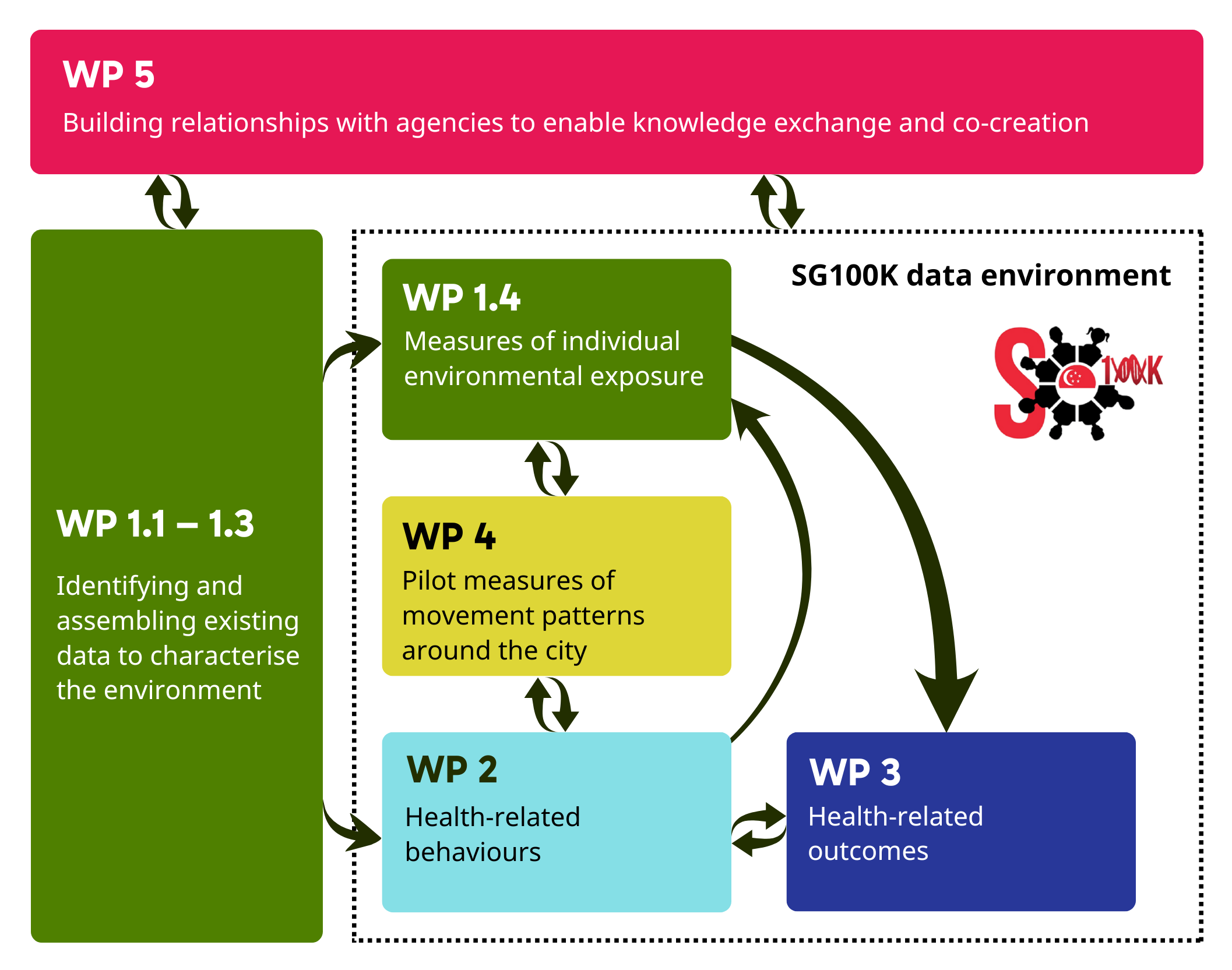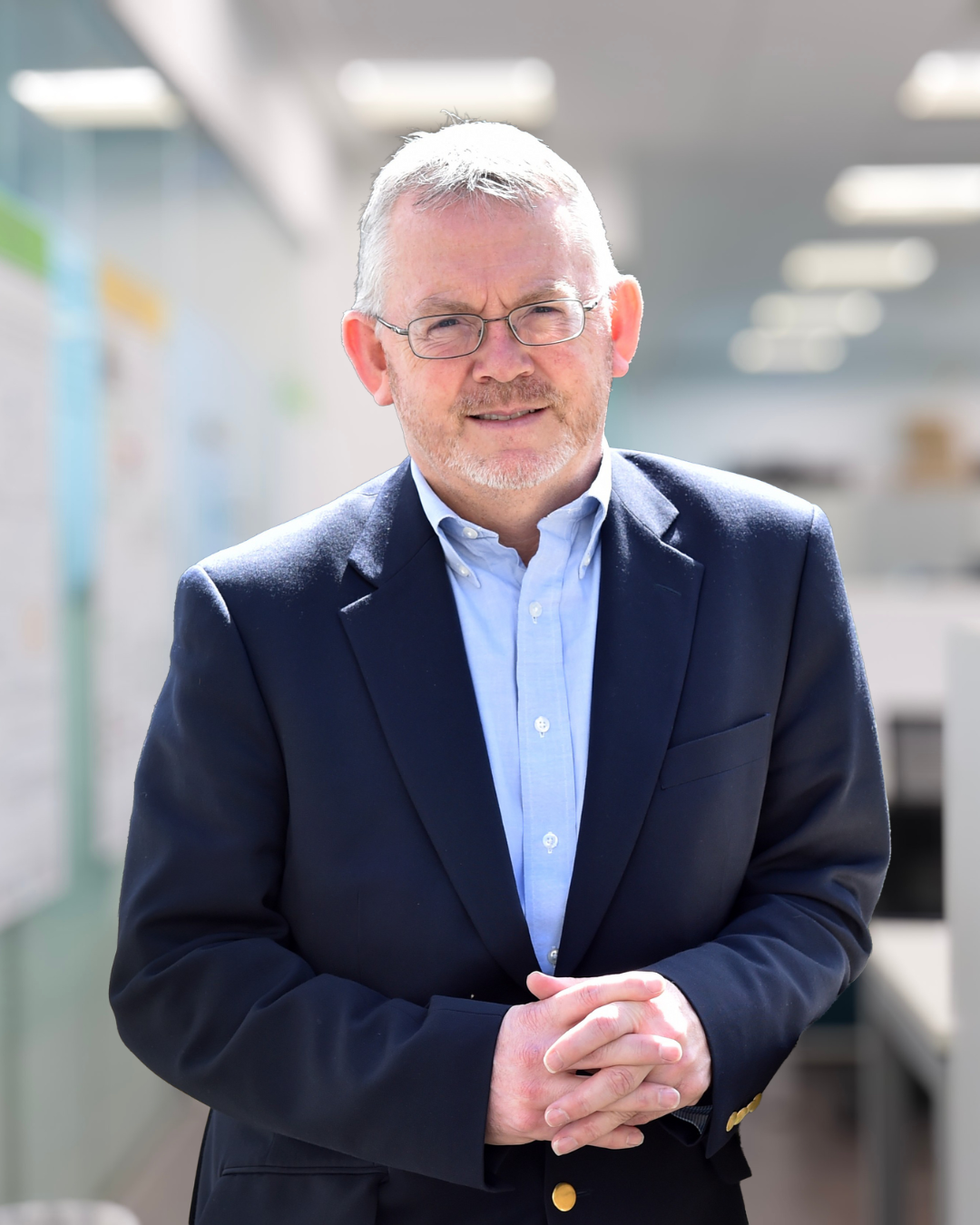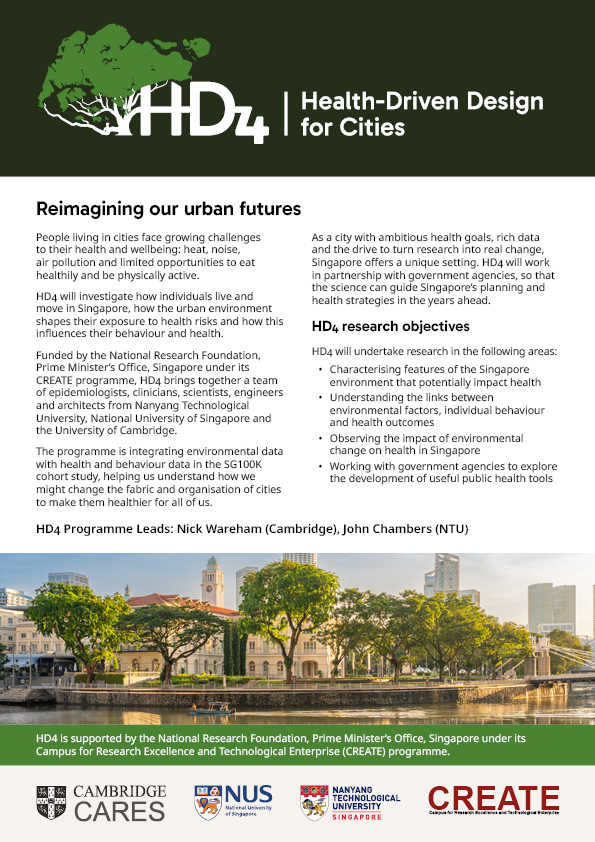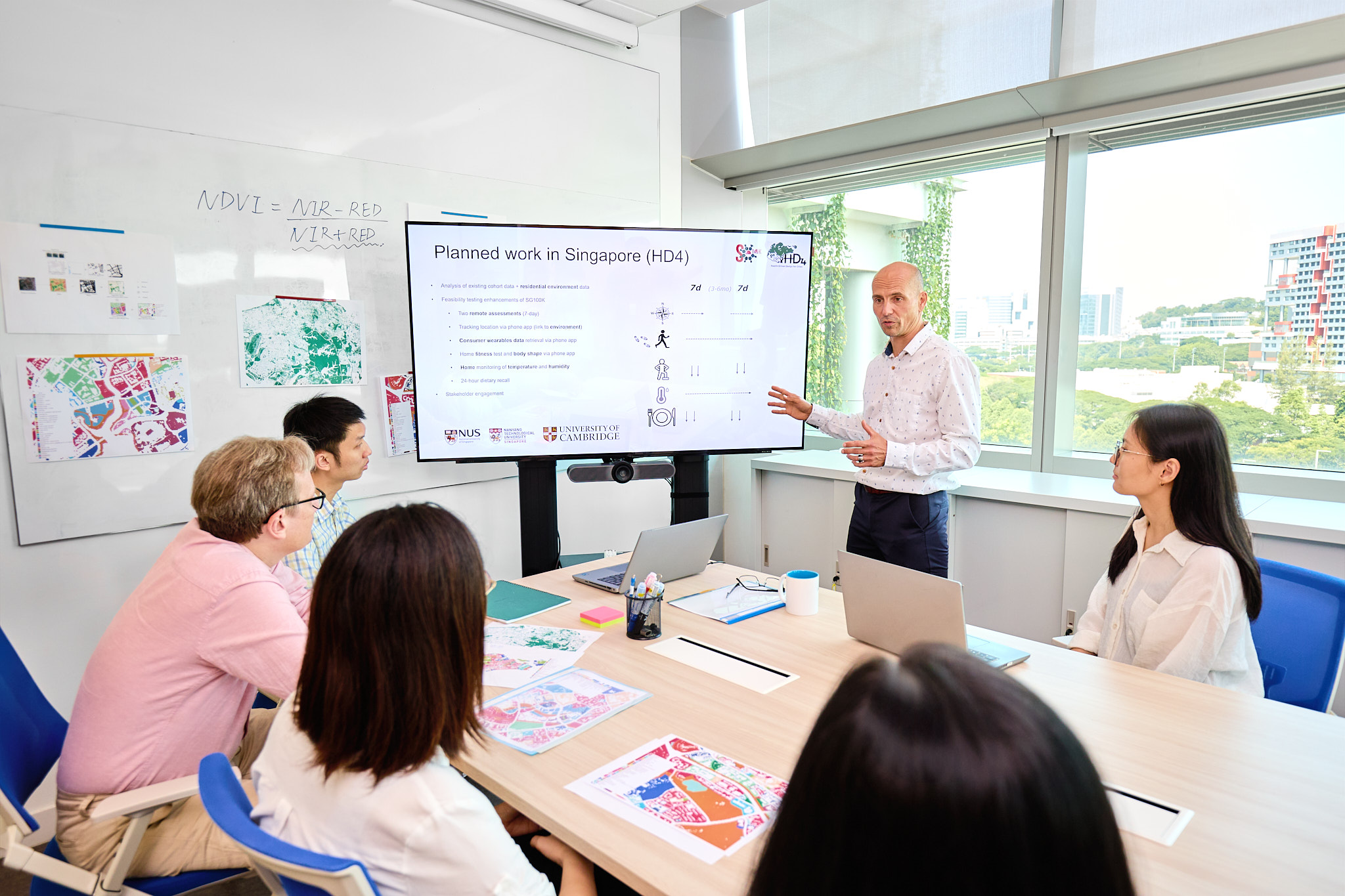Health-driven design for cities (HD4)
People living in cities face growing challenges to their health and wellbeing: heat, noise, air pollution and limited opportunities to eat healthily and be physically active.
HD4 will investigate how individuals live and move in Singapore, how the urban environment shapes their exposure to health risks and how this influences their behaviour and health.
Funded by the National Research Foundation, Prime Minister’s Office, Singapore under its CREATE programme, HD4 brings together a team of epidemiologists, clinicians, scientists, engineers and architects from Nanyang Technological University, National University of Singapore and the University of Cambridge
The programme is integrating environmental data with health and behaviour data in the SG100K cohort study, helping us understand how we might change the fabric and organisation of cities to make them healthier for all of us.
As a city with ambitious health goals, rich data and the drive to turn research into real change, Singapore offers a unique setting. HD4 will work in partnership with government agencies, so that the science can guide Singapore’s planning and health strategies in the years ahead.
HD4 Research Objectives
HD4 will undertake research in the following key areas:
– characterising the features of the environment that potentially impact health in Singapore;
– understanding the links between environmental factors, individual behaviour and health outcomes;
– observing the impact of environmental change on health in Singapore;
– simulating the impact of potential changes on the health of Singaporeans;
– working with government agencies to co-develop data-rich public health tools
HD4 Phase 1 Research Plan
HD4 will proceed in two phases. Phase 1’s five interconnected work packages will show how we can link data describing individual environmental exposures to the health data in SG100K. This will pave the way for Phase 2, which will identify interventions to help improve the health of Singaporeans.

Work Package 1: Identifying and assembling existing data to characterise the environment with measures of individual environmental exposure
Work Package 2: Health-related behaviours
Work Package 3: Health-related outcomes
Work Package 4: Piloting measures of movement patterns around the city
Work Package 5: Building relationships with agencies to enable knowledge exchange and co-creation
HD4 Relevant Links
This research is supported by the National Research Foundation, Prime Minister’s Office, Singapore under its Campus for Research Excellence and Technological Enterprise (CREATE) programme.
Leads

University of Cambridge, MRC Epidemiology Unit

Nanyang Technological University, Lee Kong Chian School of Medicine
Deputy Leads

University of Cambridge, Department of Architecture

National University of Singapore, Department of Architecture


